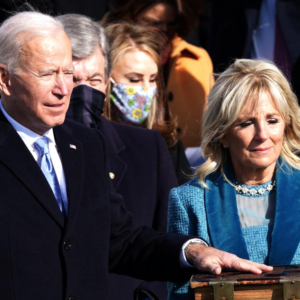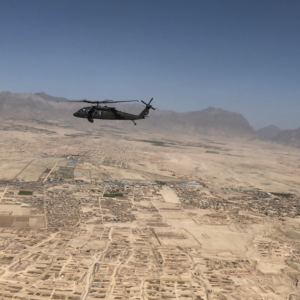On a hazy December day in 2011, as the United States ceded all combat duties to Iraqi security and defense forces, then-Secretary of Defense Leon Panetta thanked Iraqis in a ceremony in Baghdad for their “loyalty to the future of Iraq” and heralded the “independent, free and sovereign Iraq.” This was expected to be the end of the war in Iraq – a war that lasted nearly nine years, shattered and ended thousands of lives, and one that President Barack Obama declared he would end during his 2008 campaign. However, given the US’s history in Iraq, and the quick emergence of the Islamic State (IS), this would not be the final chapter written about the US’s involvement in Iraq.
With the recent decision to launch airstrikes against IS and send humanitarian aid to trapped hostages in northern Iraq, there should be no surprise that the US is again involved in matters inside of Iraq. The US’s involvement in Iraq started long before the latest conflict inside its borders. It even begins before former President George H.W. Bush launched the Persian-Gulf War in 1991 to remove Iraqi forces who invaded and annexed Kuwait. US involvement in Iraq began in 1982, when President Ronald Reagan provided intelligence and armaments to support former Iraqi President Saddam Hussein during the Iran-Iraq War. The difference at this time was that the US and Iraq were allies in the fight against Iran, whose diplomatic relations with US ended after the hostage crisis. From there, there were several events in which the US sought to weaken and isolate Iraq on the world stage: the Persian-Gulf War of 1991, former President Bill Clinton’s airstrikes to dismantle Hussein’s weapons programs, and former President George W. Bush’s invasion of Iraq in 2003 to depose Hussein. The US has a long history in this country, whose actions that began in the 1980s, in my opinion, may have led to the string of events that transpired.
Although he inherited the US’s last chapter in Iraq, President Obama now begins a new chapter with the initiation of airstrikes against IS. Many have regarded IS (formerly ISIS and ISIL) to be more powerful and financially positioned than Al-Qaeda, with whom IS was formally affiliated. Earlier this year, attempting to ignore and deflect the growing issue, President Obama unwisely characterized IS as “a JV team.” With IS overtaking northern territories in Iraq, a humanitarian crisis that ensued for trapped hostages and security of US personnel at risk, the president’s hand was forced, now knowing that he was dealing with a strong and determined group. As a result, US warplanes have been providing air support for Kurdish ground fighters, who have been upending IS in conquered territories.
With the recent successes in removing IS from occupied territories, what will the rest of this chapter look like? President Obama characterized the US’s current involvement in Iraq as “a long-term project.” In my opinion, ‘long-term’ is a vague phrase. Is it defined in weeks, months, or even years? It is unclear how long the recent victories in northern Iraq will hold. With IS’s personnel and financial resources, there is a distinct possibility that IS can regroup quickly and attempt to re-conquer the territories they lost. President Obama has boxed himself into a corner: if he withdraws early, he will receive criticism from ‘war hawks’ in Congress (as they were quick to remind him after the US’s withdrawal in 2011), or if he risks a prolonged involvement, it will upset a war-weary electorate back home. Either way, this chapter is fraught with uncertainty and confusion as a more mercurial Iraq stands before the entire world.
In addressing a mercurial Iraq, what lies ahead for the US’s involvement at the conclusion of this chapter? Given Iraq’s recent disaffection with Nouri al-Maliki, his decision to resign as prime minister of Iraq leaves another wild card for the US’s future in Iraq. Prime Minister Haider al-Abadi will have the difficult and unenviable task of forming a new coalition that will unite all of the factions inside of Iraq. In my estimation, this would be a good first step to stabilizing the political situation inside of Iraq. If successful, al-Abadi and his government can re-focus their effort on de-stabilizing IS. But again, the success of al-Abadi in uniting Iraq is the wild card, which will dictate whether or not the US will have to remain involved in Iraqi affairs diplomatically or even militarily.
The US has been involved in Iraq for over three decades – numerous chapters have been written and sealed into the history books. From a handshake between former Secretary of Defense Donald Rumsfeld and former President of Iraq Saddam Hussein to airstrikes on IS, the US has played an integral part in Iraq’s affairs. But, at the conclusion of this latest military campaign and Iraq’s governmental shuffle, it is not known whether the United States’ involvement in Iraq ends here or continues for years to come.






A well written article. NIck, what we see today in international relations in no way indicates any kind of withdrawal of US. In this age of increasing religious fundamentalism and Islamic extremism, multilateral diplomacy will be the only way to address this problem because the problem has global dimensions and ramifications. The national borders have been rendered meaningless. And US, willingly or unwillingly will have to play a lead role in such multilateral forums.